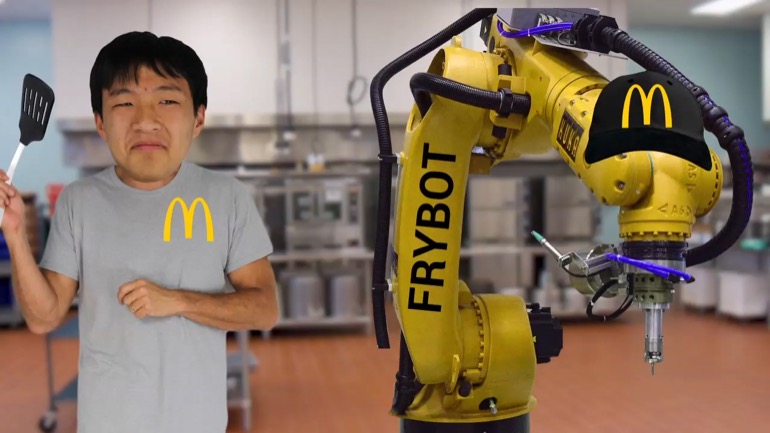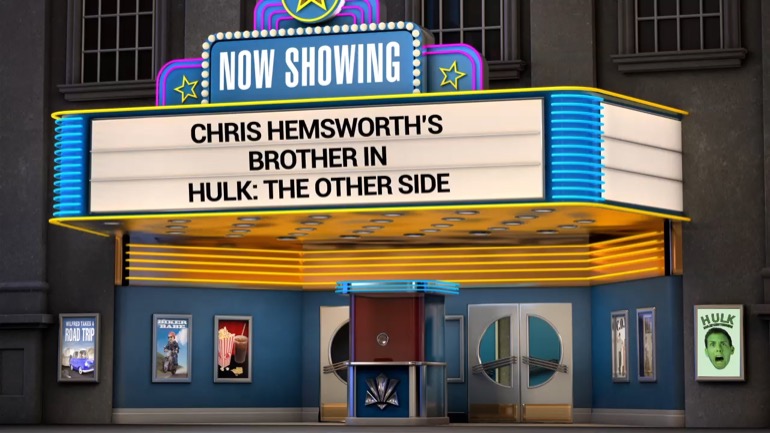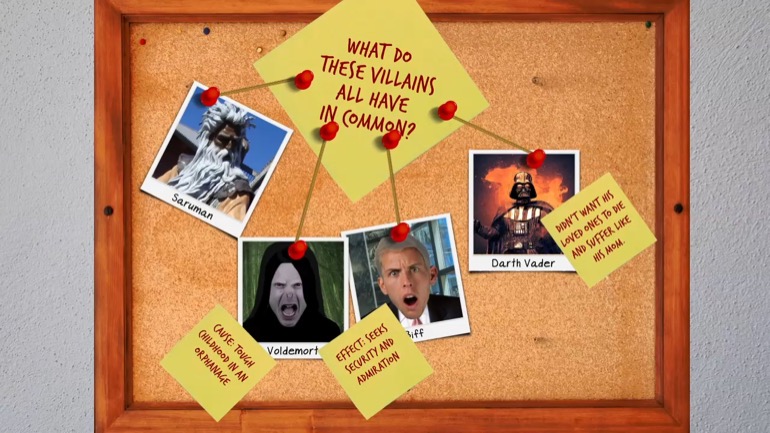ShmoopTube
Where Monty Python meets your 10th grade teacher.
Search Thousands of Shmoop Videos
Econ Videos 79 videos
What is a Production Possibilities Curve? The Production Possibilities Frontier Curve (PPF) is a statistical graphic curve that depicts the compari...
What are Income and Substitution Effects? Income effects reflects the increases or decreases in total consumption of goods and services in proporti...
How Do Companies Add Value? Companies add value by improving the client or customer experience. This can be achieved by offering better quality ser...
Econ: What are Property Rights and the Role of Incentives? 6 Views
Share It!
Description:
What are Property Rights and the Role of Incentives? Property rights are a fundamental tenet of capitalism. It confers the power of decision making by private parties within a legal system upon private property, both tangible as well as intellectual. The role of incentives in economics is to create attractive rewards and benefits to persuade others to follow a certain path in the use of capital or to dissuade others with penalties so they will avoid a certain direction in their capital applications.
Transcript
- 00:00
And finance Allah shmoop What our property rights and the
- 00:05
rule of incentives to finding property rights can sometimes help
- 00:11
groups of people solve problems Property rights are the rights
- 00:14
of legal ownership of a certain resource or property like
- 00:18
when you own a tree one that's throwing shade onto
Full Transcript
- 00:21
another property Well that's legal shade throwing from one neighbour
- 00:25
to another The shade is an example of what we
- 00:28
call an externality to side effect from one party's activity
- 00:32
that affects another If the shade is considered a bonus
- 00:35
well nobody likes skin cancer you know Then it's a
- 00:38
freebie something they didn't pay for but are glad to
- 00:41
have Anyway I eat It's a positive externality If the
- 00:45
shade is considered a problem by the neighbour like go
- 00:48
well if they want to get their tan on well
- 00:51
then it would be considered a negative externality Well we
- 00:54
usually focus on negative externalities since people don't like them
- 00:58
A common example of a negative extra analogy in economics
- 01:01
runs when factories pollute nearby residential areas whether by making
- 01:06
the air quality horrible or leaking chemicals into ground water
- 01:10
which results in early deaths and dork while jaw dropping
- 01:13
medical bills and all kinds of other sadness Well positive
- 01:16
externalities air important too since they can result in moochers
- 01:19
mooching hard core If you've ever put more than your
- 01:22
fair share of work into a quote team unquote project
- 01:25
you know the drill You work hard only to see
- 01:28
other people than taking credit for work they didn't do
- 01:31
We call this the free rider problem where one group
- 01:35
gets benefits without paying any expenses or costs for those
- 01:39
benefits which fall on someone else You know we've all
- 01:42
been there on one side or another negative and positive
- 01:44
externalities both cause what we call dead weight loss which
- 01:48
measures how inefficient things are for society We prefer no
- 01:52
dead weight loss which would mean that everyone's paying for
- 01:55
what they're getting People who have to deal with negative
- 01:58
externalities would get paid for those externalities and people with
- 02:02
positive externalities would pay for the freebies they're getting When
- 02:05
it's clear what belongs to whom It's easier to work
- 02:08
out externality problems like the problem of the Chocolate River
- 02:12
use in Willy Wonka's Chocolate Factory Let's break it down
- 02:15
One group of people Loompas Chako Loompas make chocolate which
- 02:19
requires the Chocolate River Another group of Oompa Loompas Gobstopper
- 02:23
Loompas used the chocolate river for Transportacion Will the Chako
- 02:27
Lupas don't like that The Gobstopper Loompas are using the
- 02:31
river since they're polluting it that pollution is a negative
- 02:33
externality for the Chako Loompas Well the Chaka Loompas feel
- 02:37
like they were minding their own business Just making chocolate
- 02:40
you know that you eat And then the Gobstopper Loompas
- 02:43
just started polluting the river Well they have to take
- 02:46
extra time now in money to clean the pollution out
- 02:49
of the Chocolate River which they don't think is fair
- 02:52
Another reason that Chaka Loompas are mad is that the
- 02:54
Gobstopper Loompas are just using the river as transportation for
- 02:58
free Where the Chaka Loompas CIA Free Rider Problem The
- 03:01
Gobstopper Loompas CIA positive externality As long as nobody says
- 03:06
anything Polluters air incentivized to keep pollutant without paying for
- 03:09
it and moochers r incentivized to keep on mooching At
- 03:13
the Opal Opal lunch all things got tense before violence
- 03:16
broke out One Loompa Loompa who works with the squirrels
- 03:19
said You guys should just property rights so Mr Wonka
- 03:23
doesn't have to get involved again And that's just what
- 03:27
they did the belugas All agreed that the Chako Loompas
- 03:30
should have the property rights to the river and that
- 03:32
the Gobstopper Loompas should hey to use and well to
- 03:36
pollute the river The fees paid went towards paying for
- 03:40
the pollution filtering of the chocolate River I eat that
- 03:42
negative externalities The fees accounted for them using the river
- 03:46
as a positive externality too Since the Gobstopper Loompas had
- 03:50
to actually pay to use the river Now they were
- 03:52
more conservative with how they transported their gobstoppers resulting in
- 03:56
less pollution in the river for the Chaka Loompas toe
- 03:59
filter out as well as well the money to pay
- 04:02
for it resulting in an efficient market outcome This is
- 04:05
an example of how private property rights can solve externality
- 04:08
problems without public solutions and all kinds of congressional mandates
- 04:12
needed for public solutions are government interventions like the popular
- 04:16
cap and trade thing For example the idea that you
- 04:19
can internalize an externality with property rights and no need
- 04:22
for government intervention is thanks to Nobel Prize winner and
- 04:26
very smart human being Ronald Coast the coast there um
- 04:29
under the coast here um it doesn't matter to whom
- 04:32
property rights are assigned as long as they're assigned to
- 04:35
someone If they are then poof gnome or externalities Well
- 04:39
unfortunately the Coast serum of setting property rights to get
- 04:42
rid of things like negative externalities doesn't always work For
- 04:45
instance it's easy to assign property rights to a river
- 04:48
But what about to the air Well pollution start small
- 04:51
than spreads all the way across the globe No one
- 04:54
owns all the air so yeah it's a problem This
- 04:58
is what we call the assignment problem when it's hard
- 05:01
to ask Sign property rights to a thing There's also
- 05:04
something called the holdout problem Well what if some of
- 05:07
the Temple Loompas were stubborn and couldn't reach an agreement
- 05:10
on what to do when there's shared ownership There's the
- 05:13
potential for someone in the group to hold out because
- 05:16
they disagree with everyone else Congress Sorry just coughing Excuse
- 05:21
me There's something else that happens sometimes when you try
- 05:23
to use property rights to fix things transaction costs and
- 05:27
negotiation issues right Well the Coast theory assumes that negotiating
- 05:31
doesn't cost anything Big corporations might have the time and
- 05:34
money to go through court to settle disputes about the
- 05:37
pollution they're doing and not paying for But families don't
- 05:41
Which is why class action lawsuits are ah thing Transaction
- 05:44
costs are rial and can be a serious barrier when
- 05:47
there are problems You know like the assignment problem the
- 05:50
holdout problem and too high negotiation costs Well we turn
- 05:54
to public solutions than over private ones to solve those
- 05:58
externality issues If only things were as simple in the
- 06:00
real world as they are in Willy Wonka's chocolate factory
- 06:03
life would be better provided you keep away from the 00:06:06.407 --> [endTime] squirrels Of course Yeah they'Ll get you
Related Videos
GED Social Studies 1.1 Civics and Government
What is bankruptcy? Deadbeats who can't pay their bills declare bankruptcy. Either they borrowed too much money, or the business fell apart. They t...
What's a dividend? At will, the board of directors can pay a dividend on common stock. Usually, that payout is some percentage less than 100 of ear...
How are risk and reward related? Take more risk, expect more reward. A lottery ticket might be worth a billion dollars, but if the odds are one in...



















































































